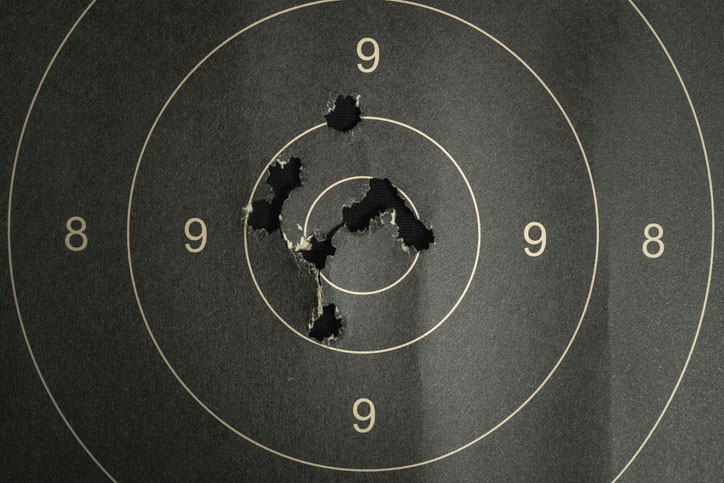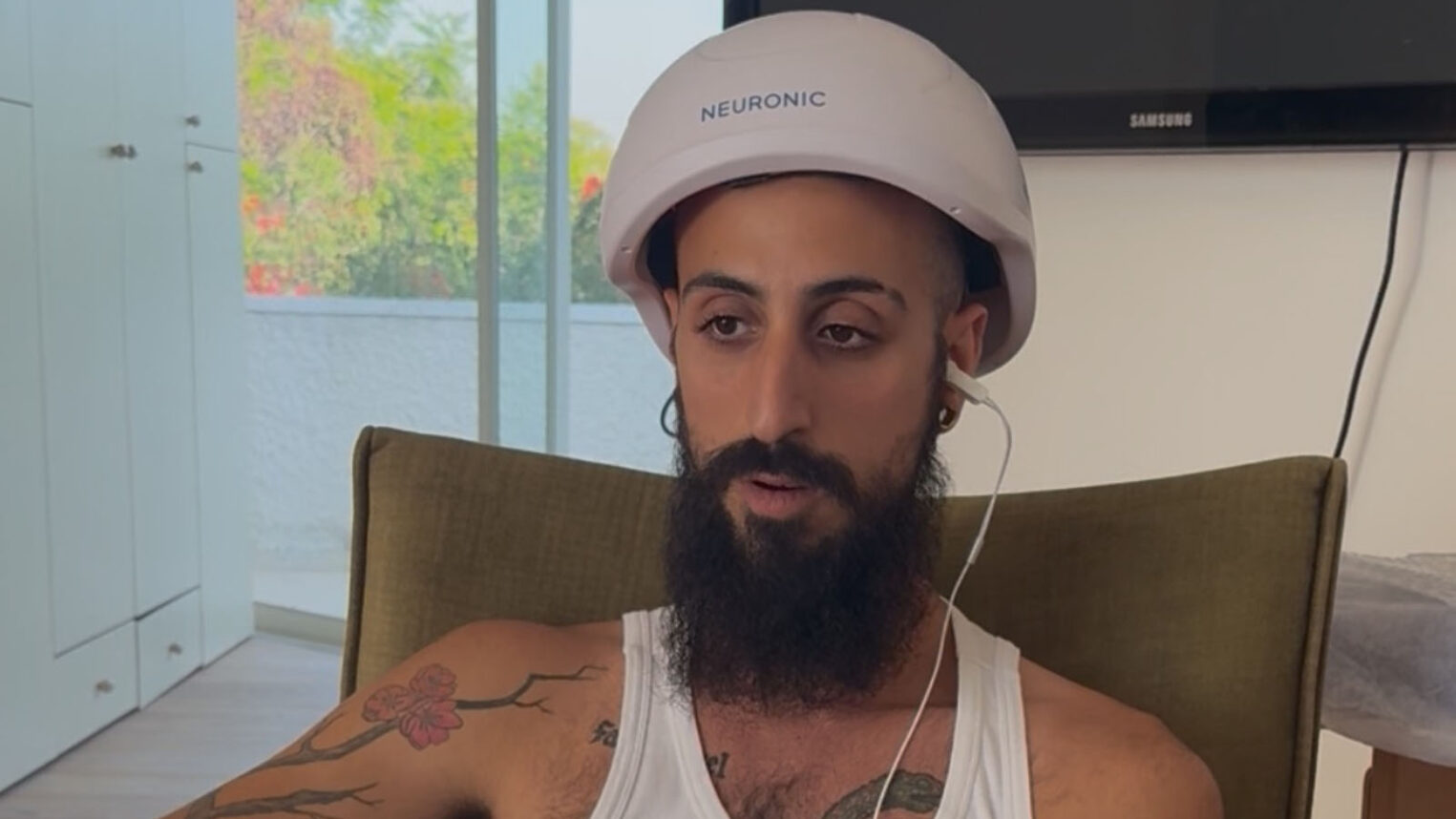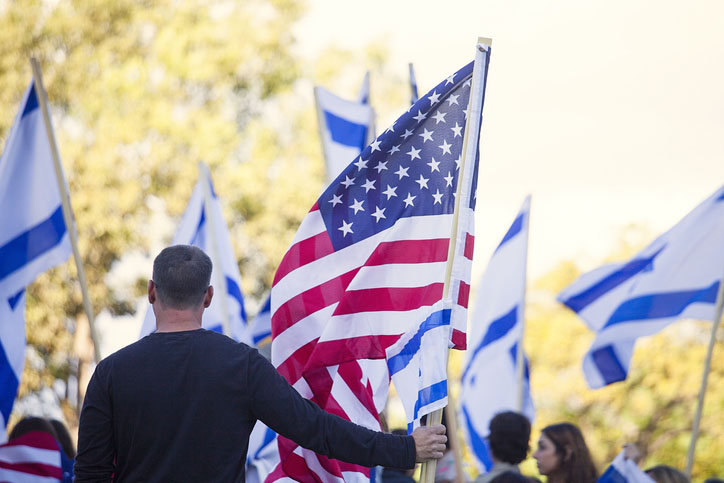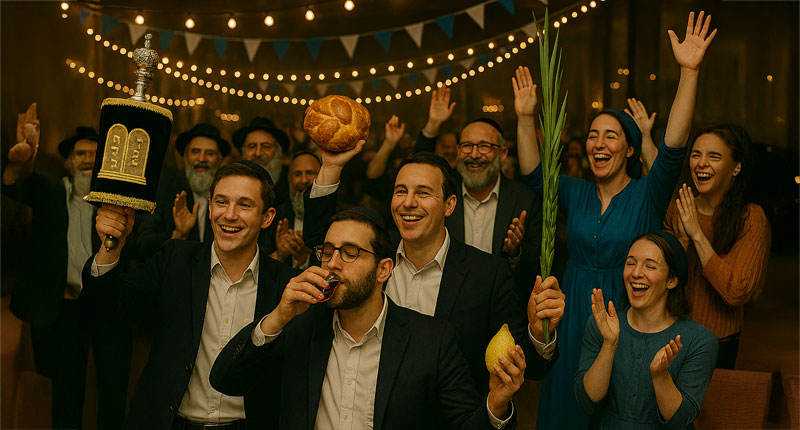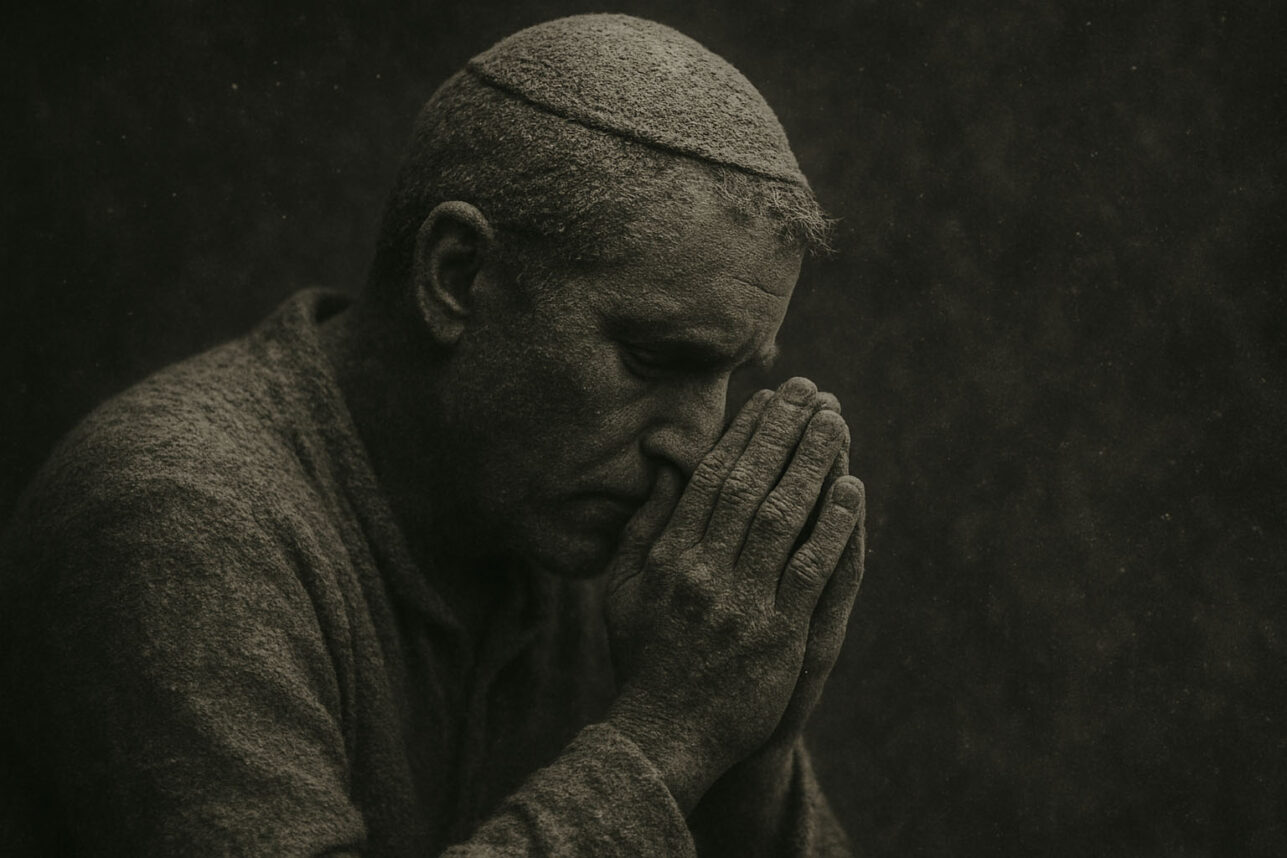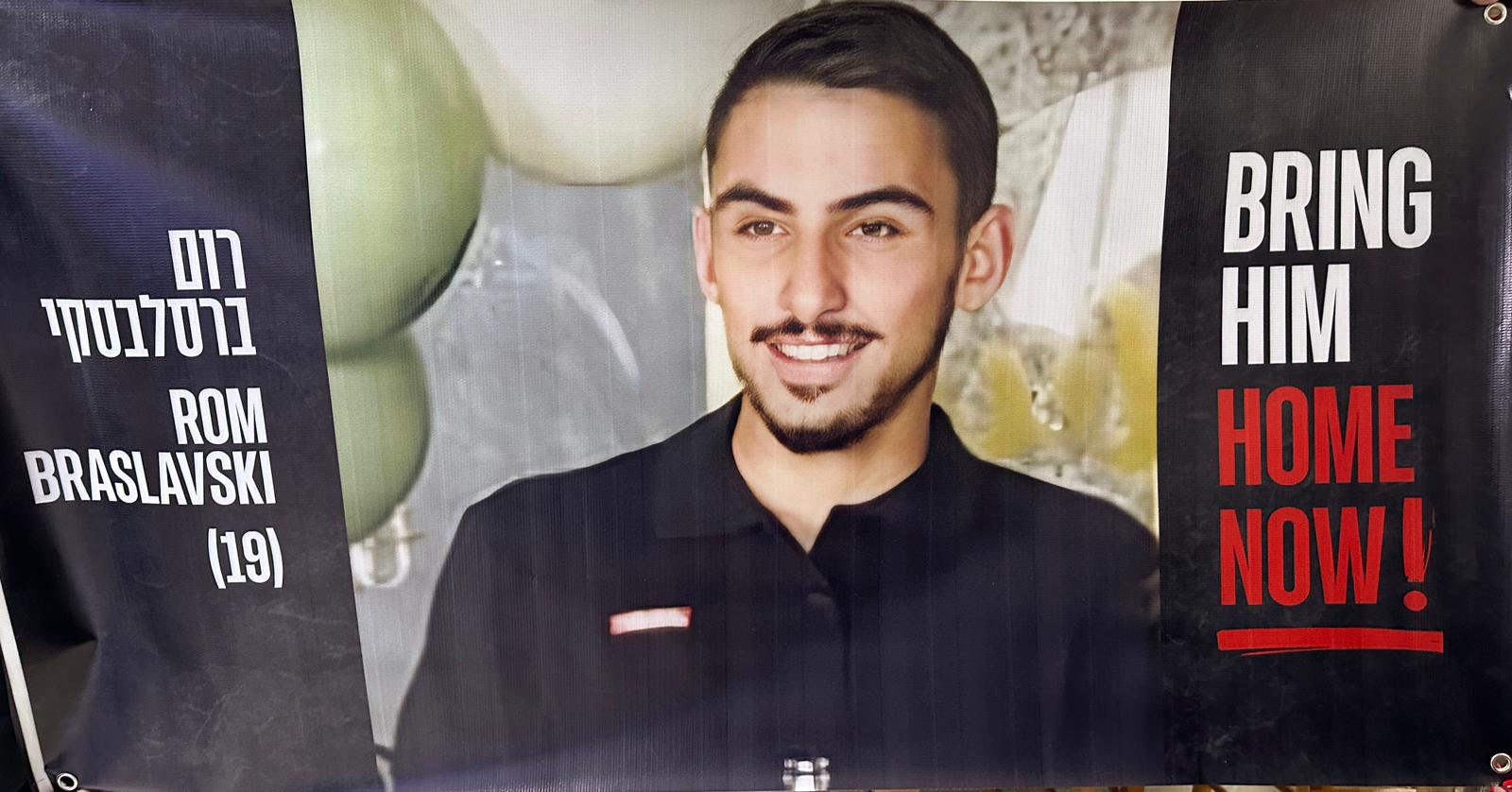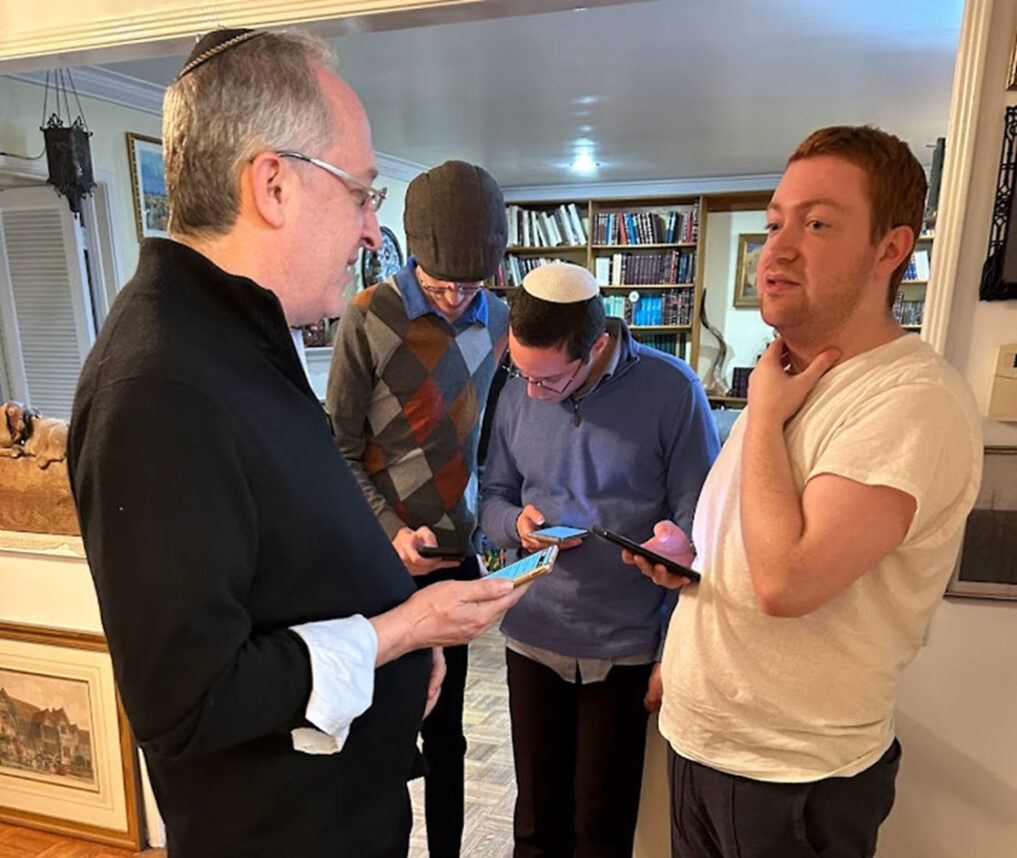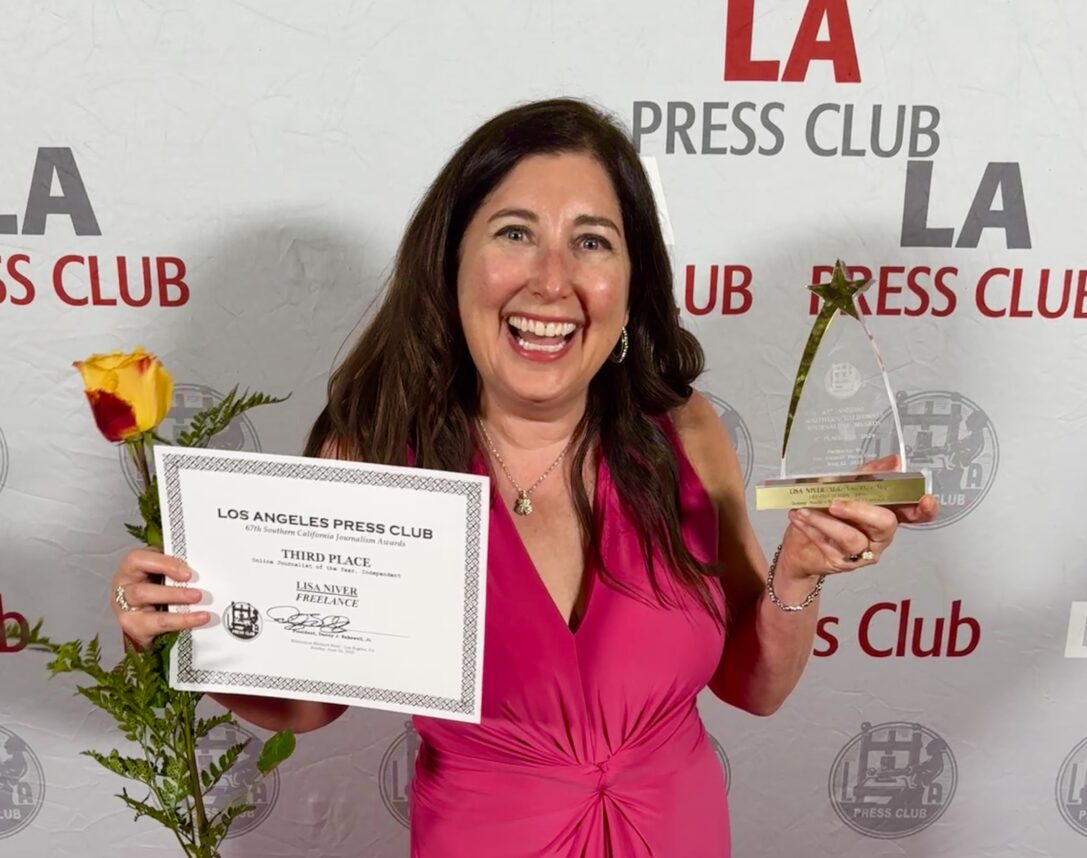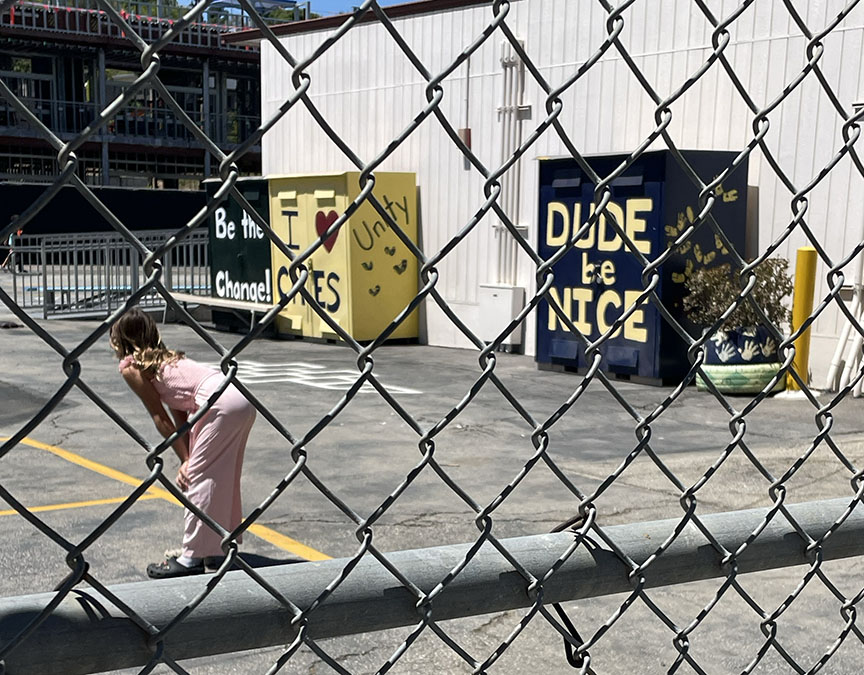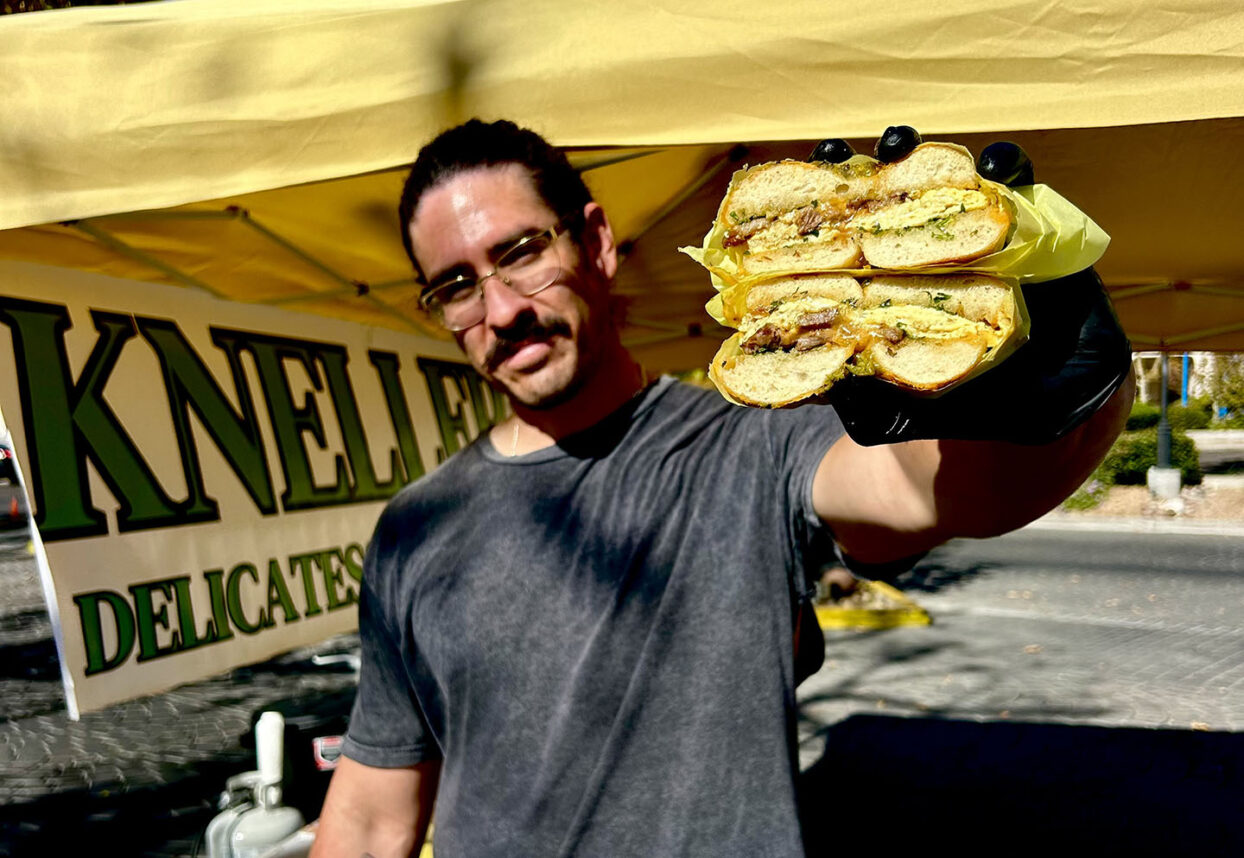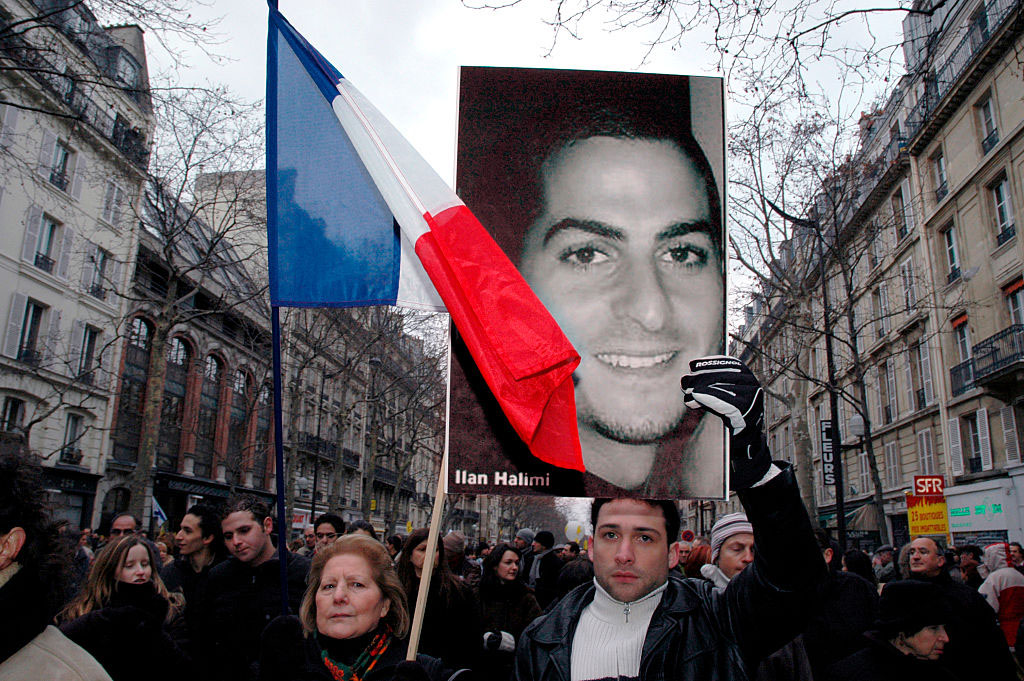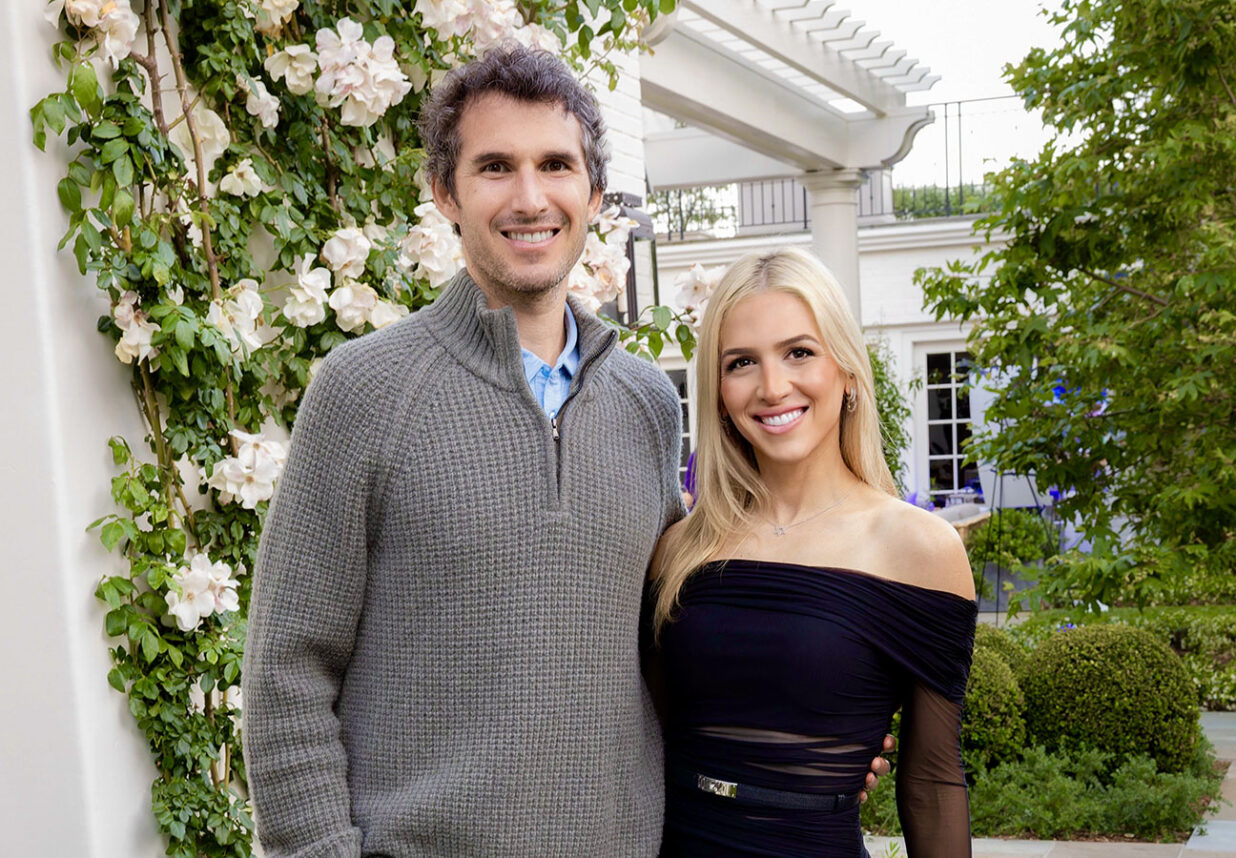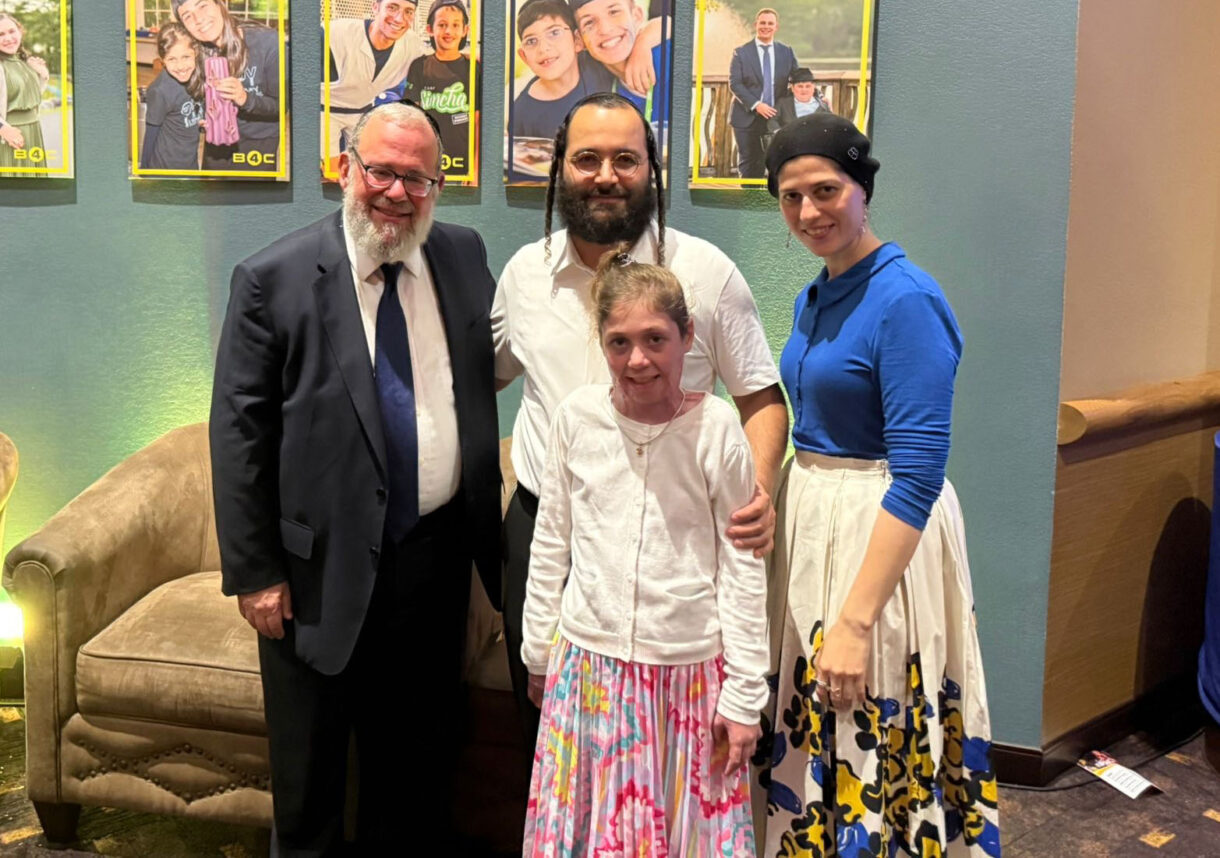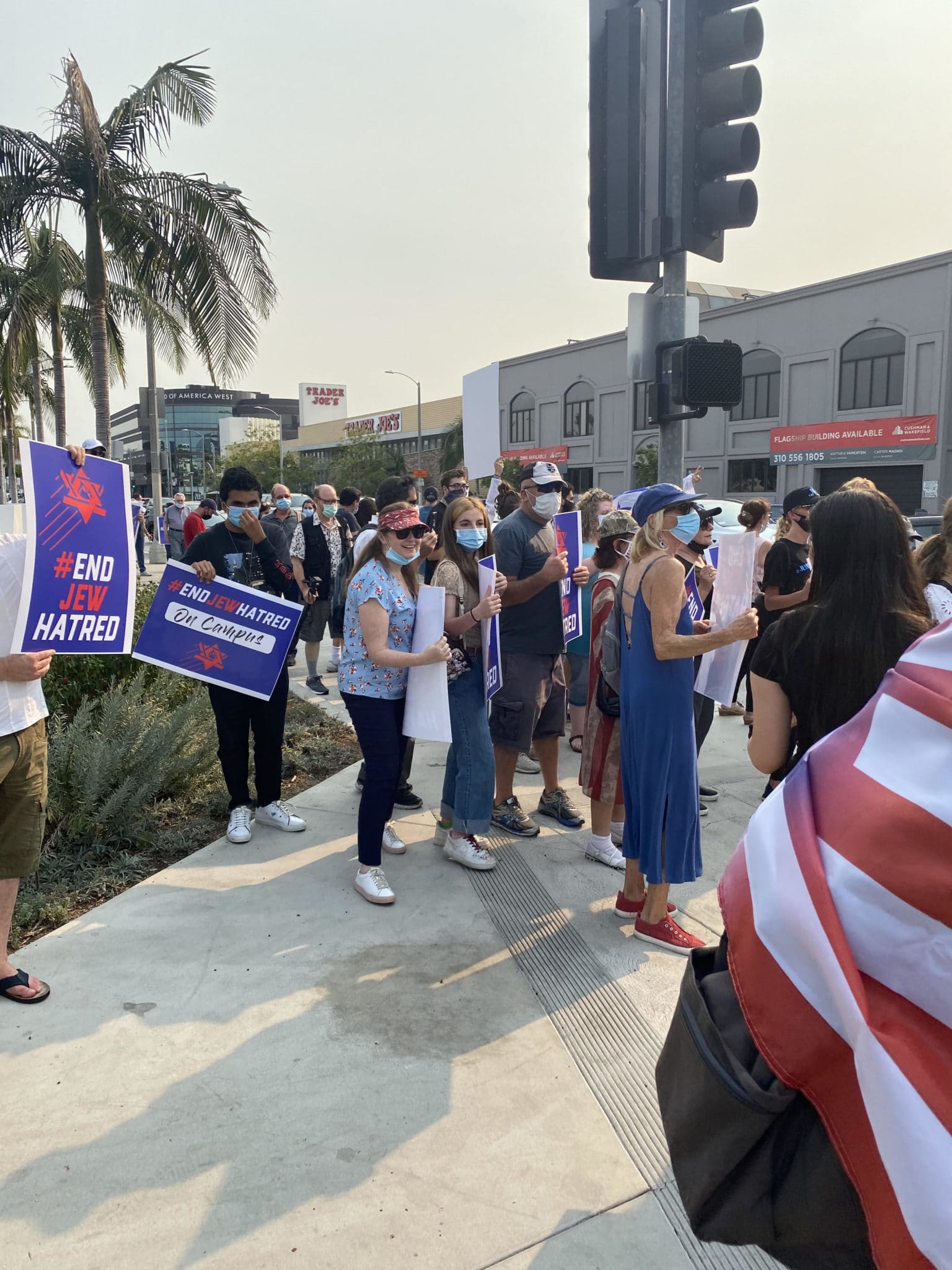
A protest against anti-Semitism at USC was held at The Grove on Sept. 7, with at least 100 people participating.
The protest was in response to USC student Rose Ritch announcing her resignation as student vice president in August, alleging that she was harassed on social media over her Zionist identity, including one comment she said calling for impeaching her “Zionist a–.” Rick Caruso, who heads the company that owns The Grove, is also the chair of the USC Board of Trustees.
The organizations hosting the protest included the Lawfare Project, the Institute for Black Solidarity With Israel (IBSI), Club Z, Yad Yamin, Beverly Hills Jewish Community Synagogue, and Herut North America.
Masha Merkulova, founder and executive director of Club Z, opened the protest, arguing Sept. 7 was just the beginning for the new End Jew Hatred movement.
“We are here to demand an end to Jew hatred in this generation,” she said. “We are tired of seeing Jews excluded and punished for our identity. We are sick when Middle East policies are being used to keep Jewish students out of spaces. We are fed up of showing up again and again for other marginalized [people] only to get cold shoulders when it’s our turn.”
She also called for action and consequences against anti-Semites.
“We will not allow bigots and racists to use Zionism against us,” Merkulova said.
Jennifer Karlan, a Los Angeles high school student and Club Z teen, spoke next, arguing that if the call to impeach Ritch’s “Zionist a—” was replaced with any other ethnic group, there would be serious consequences. But because Ritch is a Zionist, such action has not been taken.
“BDS [boycott, divestment and sanctions] and other Jew-hating groups have so successfully maligned and vilified the word Zionism so as to distort it from its meaning entirely,” Karlan said. “Zionism is not their word. Zionism is the word of the Jewish people.”
She equated Zionism to Jews as like flour to bread. “There is no Jewish people without our homeland,” Karlan said. “There is no Jewish people without the land of Israel.”
Karlan added that Jewish students on campus shouldn’t be forced to choose between their Zionist identity and being able to participate in student life on campus. She called on Caruso to take action to protect Jewish students at USC.
“Speak up for Rose, but more importantly speak up for Jewish students who hide their identity because they’re afraid of losing an important part of student life if they dare say they are Zionists,” Karlan said.
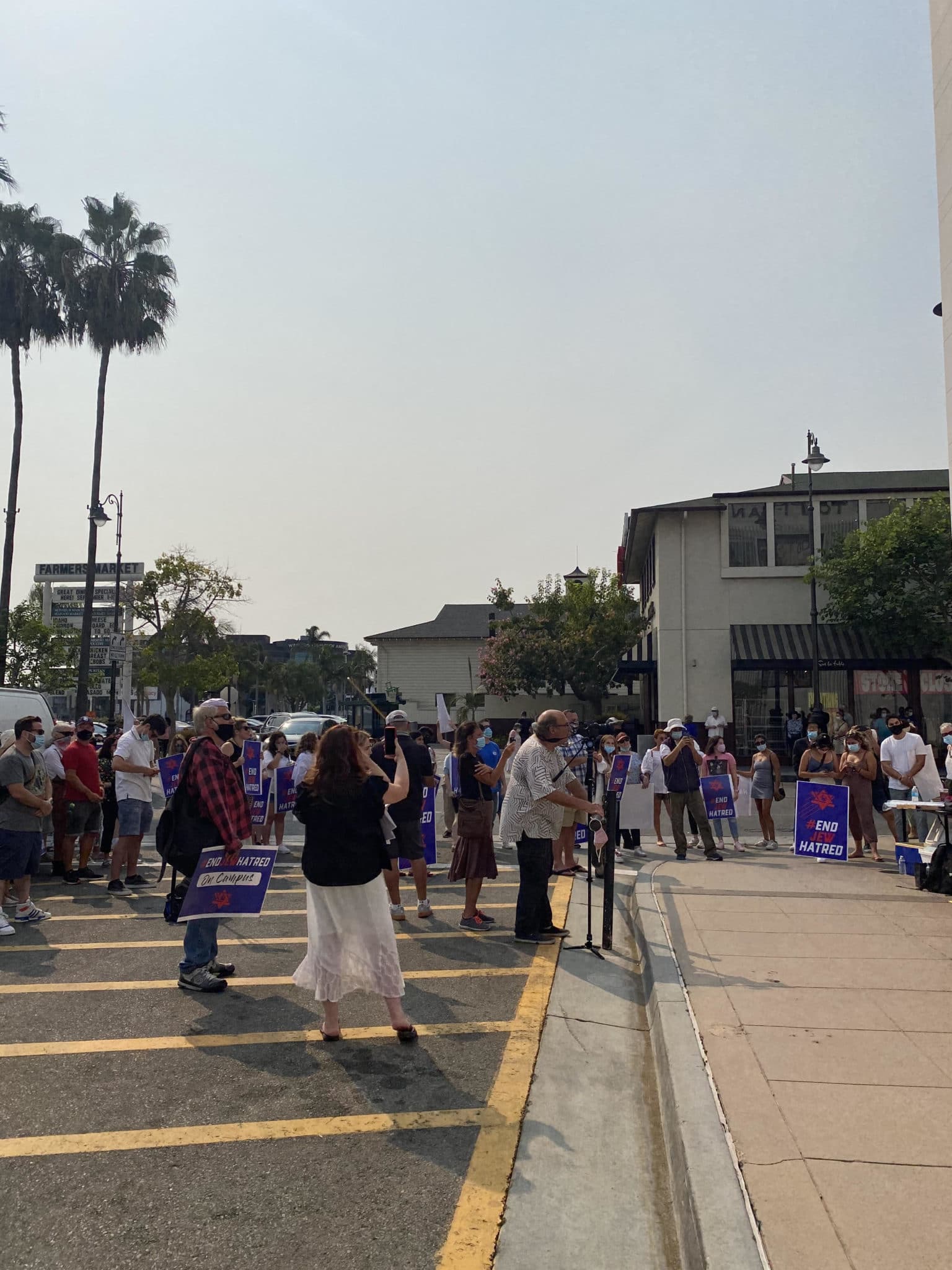
Joshua Washington, the director of IBSI, later spoke and argued that institutional anti-Semitism never ends with the Jewish people; the hatred eventually spreads to other ethnic groups.
“When I hear that Jewish students like Rose Ritch are being bullied by other students into choosing between being a Zionist and being Jewish, I think to myself, would anyone apply that same pressure to any other ethnic group?” Washington said. “Would those same students force a Kenyan American to have to choose between being Kenyan and supporting Kenya’s right to exist?”
Washington said that Jewish students are made to feel like they can be accepted on college campuses only if they’re “meek and quiet and you stay in your place.”
“I can tell you as a Black man, someone who won’t accept you because you’re strong is not someone by who you want acceptance. If someone will only bring you into the fold because you’re weak and defenseless, you can be sure that they will do everything they can to keep you that way.”
He added that there are many in the Black community who stand with the Jewish community against hatred.
“Historically, Blacks and Jews, our shoulders are always interlocked,” Washington said.
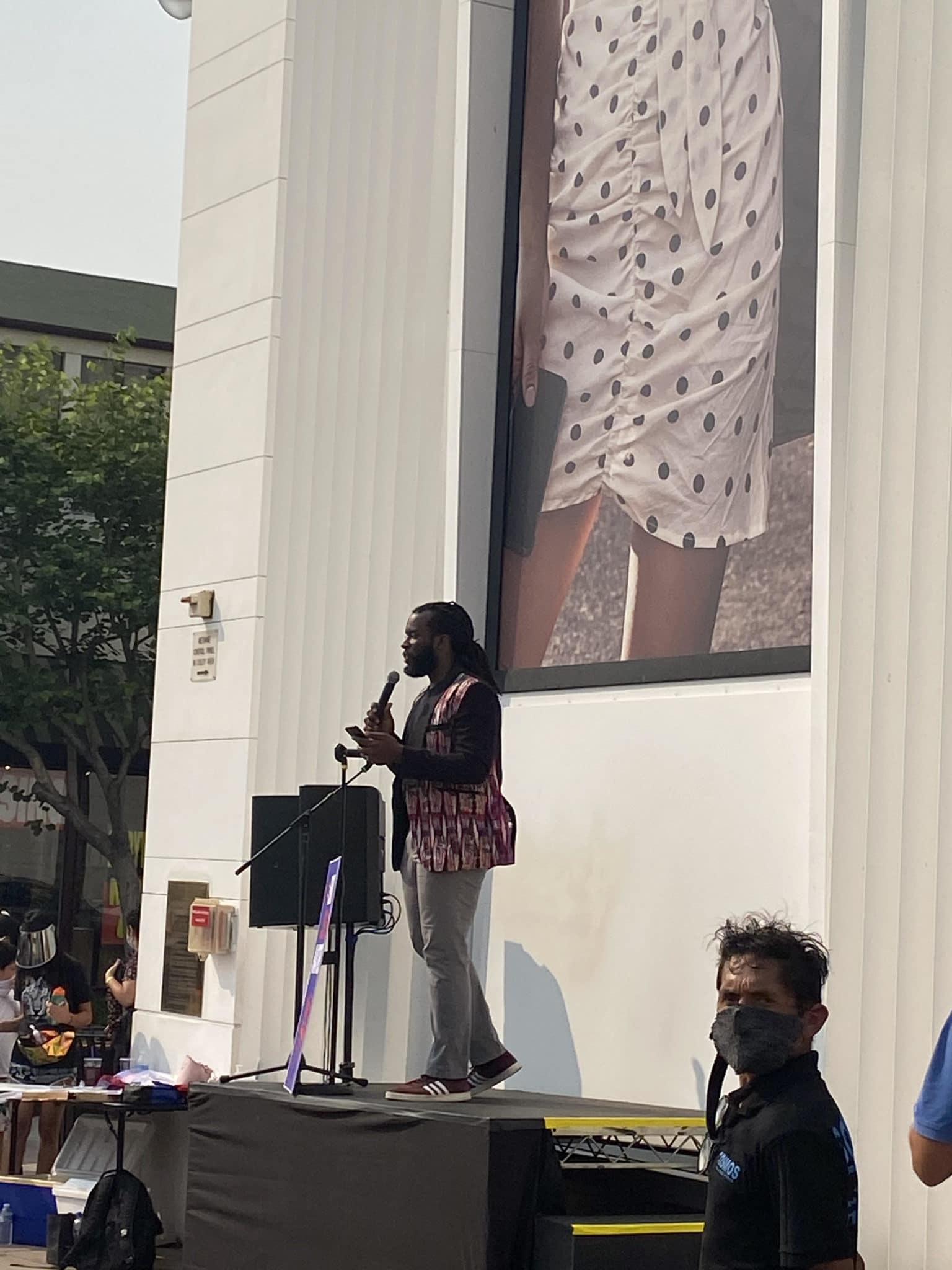
Journal contributor Micha Danzig also spoke, pointing out that a 2014 National Demographic Survey of American Jewish College Students found that 54% of American Jewish college students said they had witnessed or experienced anti-Semitism on campus. What happened to Ritch is just the latest example of a university allowing anti-Semitism to pervade on campus unabated, Danzig said.
“Our history has taught us that ignoring Jew hatred never makes it go away,” he said. “Within living memory of the Holocaust, being an open Jew-hater in Europe went from being something beyond the pale to something unfortunately commonplace. That recent history has shown us how letting anti-Zionism give false cover to hate created a Europe where being openly Jewish is often a risky proposition, and where every synagogue and Jewish institution needs armed guards.”
He called for administrators at universities across the country to adopt a zero-tolerance approach to anti-Semitism.
“Jew hatred will [be] treated by all college administrators, at schools like USC, the same way they treat all other forms of harassment or discrimination based on a person’s faith, ethnicity or race,” Danzig said. “Nothing more and nothing less.”
Gerard Filitti, senior counsel for the Lawfare Project, lauded the turnout at the protest and called for a civil rights movement for the Jewish people.
“This is where we start doing that: by standing together and fighting instances of hate, one at a time,” Filitti said.
Another speaker was Lana Melman, CEO of Liberate Art, an organization that fights against cultural boycotts of Israel. Shayna Lavi, who was told during a 2019 UCLA guest lecture that she is a white supremacist because she’s a Zionist, also spoke at the protest, as did her sister, Talia Lavi, who introduced a Black and Jewish Unity initiative.
After the speakers, protesters marched across West Third Street and Fairfax Avenue holding “End Jew Hatred” signs as several cars honked in solidarity.











